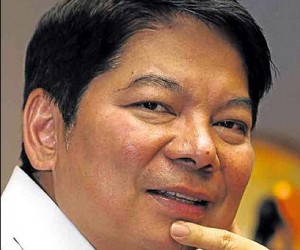BSP seen to keep key rates unchanged
The Bangko Sentral ng Pilipinas (BSP) has once again signaled that interest rates would likely stay on hold at next week’s policy stance meeting, with benign inflation giving space for settings that encourage economic growth.
BSP Governor Amando Tetangco Jr. on Tuesday said there was no need to raise interest rates despite recent moves by other emerging market policymakers to strengthen their respective currencies by mopping up liquidity.
“There’s no urgency for a change in policy coming from that end because inflation continues to be well under control,” Tetangco told reporters, reiterating previous statements that policy rates were at appropriate levels.
The BSP’s policy-making Monetary Board meets Thursday next week to discuss possible adjustments in benchmark interest rates and yields for special deposit accounts (SDA), which are among the measures in its toolkit to keep consumer prices stable and encourage economic growth.
Benchmark overnight borrowing and lending rates stand at record lows of 3.5 and 5.5 percent, while the yield for SDAs across all maturities is 2 percent—also a record low.
Article continues after this advertisementTetangco said, however, that the BSP would monitor developments in the United States, Europe and Japan that could affect emerging markets around the world.
Article continues after this advertisement“You’ve already seen that changes in policy, even only planned changes of policy, let’s say in the US, can have significant impact on financial markets around the world, including the Philippines,” he pointed out.
“What we want to emphasize is that even while there is volatility, the fundamentals of the Philippine economy remains sound. That’s why the gyrations in financial markets, like the foreign exchange market, the equities market and the bond market, were short-lived,” he said.
Tetangco added that the volatility that plagued the country’s financial markets last month—a result of the US Federal Reserve’s signal to an end to its easy money policies—has subsided and that movements in the equity and foreign exchange markets have normalized.
The Philippines continued to enjoy low inflation, a surplus in its balance of payments and might post healthy economic growth this year following first-quarter numbers that beat most analysts’ forecasts, Tetangco said.
The country’s debt as a percentage of gross domestic product (GDP) also continued to decline, he added. “That’s providing fundamental support to financial markets here.”
